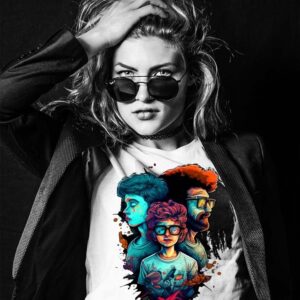
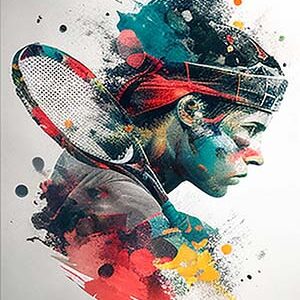
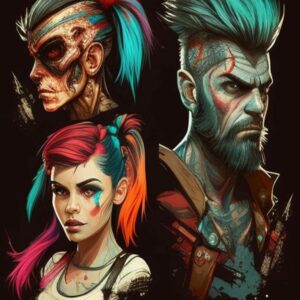
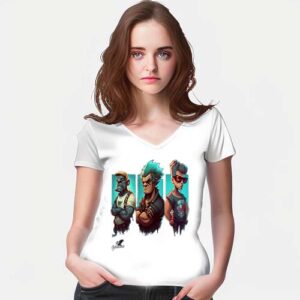



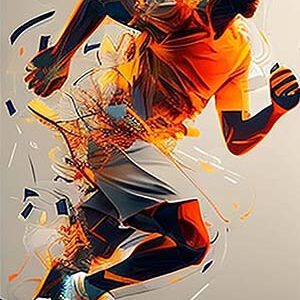
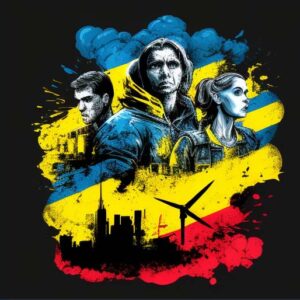
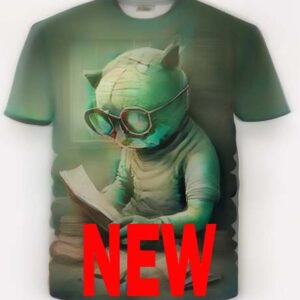

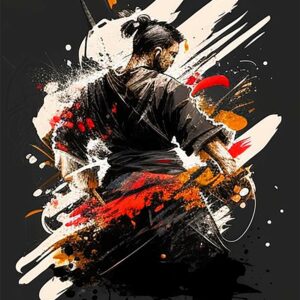

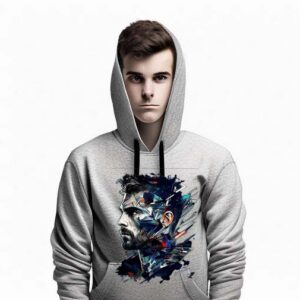

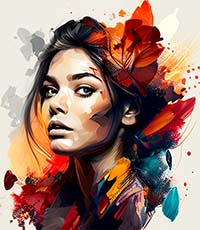

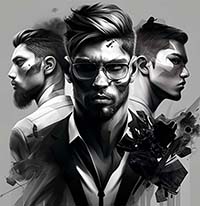
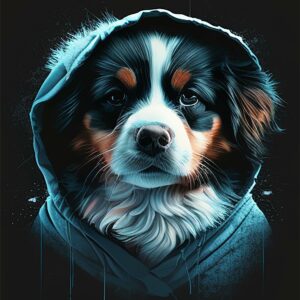

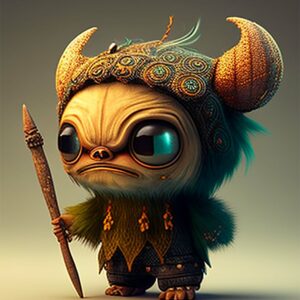
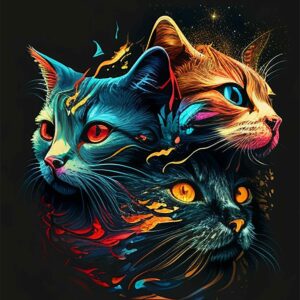
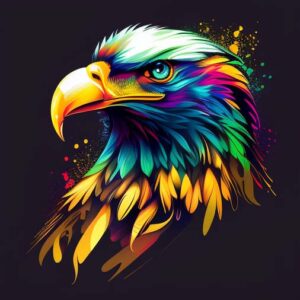


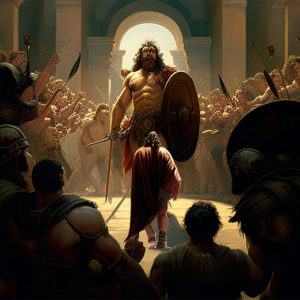
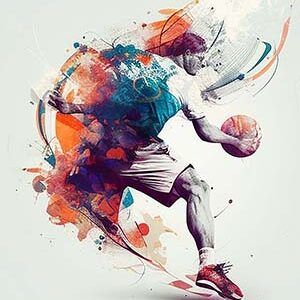
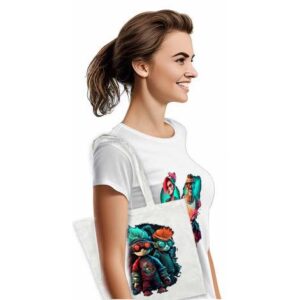
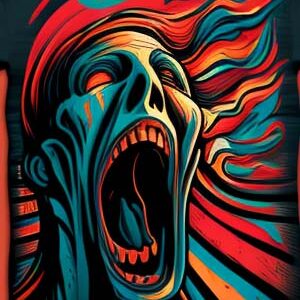

The fashion industry has always been at the forefront of innovation, constantly evolving to meet the changing demands of consumers. In recent years, the intersection of fashion and technology has become increasingly prominent, with artificial intelligence (AI) playing a significant role in shaping the future of the clothing industry. From design and manufacturing to personalized shopping experiences, AI has revolutionized various aspects of fashion. In this article, we will explore the impact of AI on the clothing industry and how it is transforming the way we create, produce, and consume fashion.
The Rise of AI in Fashion
Artificial intelligence has gained significant traction in the fashion industry, empowering brands and consumers alike. The integration of AI technologies allows fashion companies to streamline their operations, enhance creativity, and deliver personalized experiences to customers. AI-driven solutions have become instrumental in improving efficiency, sustainability, and profitability in the clothing industry.
Improving Design and Creativity
AI has revolutionized the design process, enabling fashion designers to transform their creative visions into reality more efficiently. With AI-powered tools, designers can generate unique patterns, prints, and color combinations, saving time and expanding their creative possibilities. Machine learning algorithms analyze vast amounts of data, including fashion trends, customer preferences, and historical sales data, to provide designers with valuable insights and inspiration.
Enhancing Manufacturing and Supply Chain
AI has also revolutionized the manufacturing and supply chain processes in the clothing industry. By incorporating machine learning algorithms into production planning and inventory management, fashion companies can optimize their operations, reduce waste, and improve overall efficiency. AI-powered predictive analytics help forecast demand, enabling manufacturers to optimize production schedules and minimize overstocking or understocking.
Personalized Shopping Experiences
One of the most significant impacts of AI on the clothing industry is the ability to deliver personalized shopping experiences to consumers. AI-driven recommendation systems analyze customer data, including browsing history, purchase behavior, and social media interactions, to provide tailored product recommendations. This personalization enhances the shopping experience, increases customer satisfaction, and drives sales.
AI Applications in Fashion
AI technologies have been applied in various areas of the fashion industry, transforming the way fashion brands operate and interact with consumers. Let’s explore some of the key AI applications in fashion:
Virtual Try-On
Virtual try-on technology has revolutionized the online shopping experience. AI-powered virtual try-on systems use computer vision and augmented reality to allow customers to virtually try on clothing items before making a purchase. By leveraging body scanning and image recognition technologies, virtual try-on systems provide accurate size recommendations, reducing the need for returns and increasing customer satisfaction.
Visual Search
Visual search technology enables consumers to search for clothing items using images rather than keywords. AI algorithms analyze the visual features of images, such as color, pattern, and style, to identify similar products in online catalogs. This technology simplifies the search process, making it easier for consumers to find desired items and discover new styles.
Chatbots and Virtual Assistants
Chatbots and virtual assistants powered by AI have become integral parts of the fashion industry. These virtual agents provide customer support, answer queries, and offer personalized recommendations, enhancing the overall shopping experience. By leveraging natural language processing and machine learning, chatbots and virtual assistants can understand and respond to customer inquiries, providing real-time assistance.
Supply Chain Optimization
AI technologies have significantly optimized supply chain management in the fashion industry. Machine learning algorithms analyze historical sales data, market trends, and external factors to forecast demand accurately. This demand forecasting helps fashion companies optimize their inventory levels, avoid stockouts, and minimize overstocking, leading to improved profitability and reduced waste.
The Future of Fashion and AI
The integration of AI in the fashion industry is just the beginning. As technology continues to advance, AI’s impact on the clothing industry is expected to grow even further. Here are some potential future developments:
Sustainable Fashion
AI has the potential to drive sustainability in the fashion industry. By analyzing data on materials, production methods, and environmental impact, AI can help fashion brands make informed decisions to reduce their ecological footprint. AI-powered systems can optimize material usage, improve recycling processes, and identify sustainable alternatives, promoting a more environmentally friendly fashion industry.
Hyper-Personalization
With advancements in AI, hyper-personalization in fashion is expected to become more prevalent. AI algorithms will analyze vast amounts of customer data to provide highly personalized product recommendations, styling advice, and customized designs. This level of personalization will enhance the shopping experience, strengthen customer loyalty, and drive sales.
AI-Generated Designs
AI-powered design tools have the potential to generate entirely new and unique fashion designs. By training machine learning models on vast amounts of historical fashion data, AI can create innovative patterns, styles, and silhouettes. This synthesis of human creativity and machine-generated designs opens up exciting possibilities for the future of fashion.
FAQ
1. How does AI impact fashion design?
AI impacts fashion design by streamlining the design process, providing inspiration and insights, and enabling designers to create unique patterns and color combinations efficiently.
2. How does AI improve manufacturing and supply chain in the clothing industry?
AI improves manufacturing and supply chain in the clothing industry by optimizing production planning, inventory management, and demand forecasting. This leads to increased efficiency, reduced waste, and improved profitability.
3. Can AI provide personalized shopping experiences in fashion?
Yes, AI can provide personalized shopping experiences in fashion by analyzing customer data and providing tailored product recommendations. This enhances the shopping experience, increases customer satisfaction, and drives sales.
4. What is virtual try-on technology?
Virtual try-on technology allows customers to virtually try on clothing items using computer vision and augmented reality. This technology helps customers visualize how the clothing will look on them before making a purchase.
5. How can AI contribute to sustainability in the fashion industry?
AI can contribute to sustainability in the fashion industry by analyzing data on materials, production methods, and environmental impact. This analysis helps fashion brands make informed decisions to reduce their ecological footprint and promote sustainable practices.
Testimonials
Here’s what some industry experts have to say about the impact of AI on the clothing industry:
Conclusion
The intersection of fashion and technology, particularly the integration of AI, has profoundly impacted the clothing industry. From design and manufacturing to personalized shopping experiences, AI has revolutionized various aspects of fashion. The rise of AI in manner has led to improved creativity, enhanced manufacturing processes, and the delivery of personalized shopping experiences. AI’s impact on the fashion industry will grow further as technology advances, driving sustainability, hyper-personalization, and AI-generated designs. The future of fashion is undoubtedly intertwined with the advancements in AI, paving the way for exciting possibilities and a more innovative and customer-centric industry.
For more information on the intersection of fashion and technology, visit oglasee.com.
Table: The Intersection of Fashion and Technology: AI’s Impact on the Clothing Industry
| Section | Description |
| The Rise of AI in Fashion | AI’s role in revolutionizing design, manufacturing, and personalized shopping experiences in fashion |
| AI Applications in Fashion | Virtual try-on, visual search, chatbots, and supply chain optimization |
| The Future of Fashion and AI | Potential developments in sustainable fashion, hyper-personalization, and AI-generated designs |
| FAQ | Common questions and answers about AI’s impact on the clothing industry |
| Testimonials | Expert opinions on the impact of AI on fashion |
| Conclusion | Recap of the article and the profound impact of AI on the clothing industry |